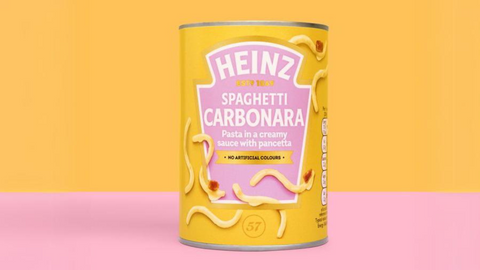Who would have thought that a simple pasta dish could spark such a culinary war? Heinz's decision to launch a canned carbonara has ignited a firestorm of controversy, particularly among Italians. But the debate has quickly crossed borders, sparking a conversation about food traditions, convenience, and the evolving tastes of a new generation.
For Italians, carbonara is more than just a pasta dish; it's a cultural touchstone, evoking memories of family gatherings and comfort food. The industrial version proposed by Heinz, with its stripped-down ingredients (pasta, pancetta, no egg!), has been perceived as an affront to tradition, a desecration of a near-sacred ritual.
“It’s a disgrace!” exclaimed Gianfranco Vissani, one of Italy’s most celebrated chefs. “A bastardization of our cuisine!” echoed many on social media. And with good reason. Carbonara, with its perfect balance of flavors and almost artisanal preparation, is a far cry from a prepackaged meal.
However, defenders of Heinz argue that the canned carbonara is simply a convenient option for busy Americans who want a taste of Italy without the hassle. "It's a quick and easy meal," say the pragmatists. "And besides, the origins of carbonara aren't exactly noble; it was born as a dish of necessity."
This last point opens up another debate. The origins of carbonara are shrouded in mystery. Some sources trace it back to the immediate postwar period when American soldiers brought powdered eggs to Italy, a key ingredient in the recipe. Others argue that it is a purely Italian invention, born from the creativity of some Roman cook.
So, is canned carbonara an abomination or an opportunity? Perhaps a bit of both. On the one hand, it represents an oversimplification of a complex and nuanced dish. On the other, it could be a way to introduce carbonara to a wider audience, even if it's in a decidedly "poor" version.
The success or failure of canned carbonara will likely depend on its ability to meet consumer expectations. If the taste is up to par, it could win over a segment of the market, especially among younger consumers. But it's hard to imagine that it will ever replace the experience of enjoying a real carbonara, prepared with love and fresh ingredients, in a restaurant or at home.
Canned carbonara is a sign of the times, a symbol of how eating habits are changing, even at the cost of compromising tradition. And who knows, maybe one day even the most intransigent chefs will have to reconsider their stance.



